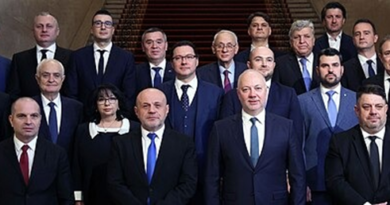The Fate of Lukoil Neftochim: Bulgaria’s Strategic Crossroads
The recent summit between Bulgarian Prime Minister Rosen Zhelyazkov and Azerbaijani President Ilham Aliyev has spotlighted the future of Lukoil Neftochim, Bulgaria’s largest oil refinery and a pivotal regional asset. Azerbaijan’s bold bid to acquire the refinery—backed by a Washington lobbying firm—signals Baku’s ambition to cement its energy dominance in the Black Sea and Southeast Europe, building on its recent acquisition of Italy’s Italiana Petroli Company. Yet, this high-stakes maneuver faces formidable obstacles, from Kremlin directives to domestic intrigues, transforming the refinery’s fate into a test of Bulgaria’s sovereignty and geopolitical alignment.
Moscow’s Unyielding Grip
The Kremlin stands as the primary roadblock. Vladimir Putin has issued a clear edict: Lukoil Neftochim must not be sold, regardless of financial losses exceeding 250 million leva annually. For Moscow, the refinery is a strategic lever—a foothold to reassert Balkan influence once sanctions wane. This explains Lukoil’s willingness to endure deficits rather than defy Russia’s orders. While the United States could pressure Sofia to oust Lukoil, as it has with Serbia’s NIS refinery, such a move risks sparking an economic or political crisis that Bulgaria’s fragile government may struggle to contain.
Support Independent Analysis
Help us keep delivering free, unbiased, and in-depth insights by supporting our work. Your donation ensures we stay independent, transparent, and accessible to all. Join us in preserving thoughtful analysis—donate today!
Domestic Power Plays and Geopolitical Tensions
Bulgaria’s internal politics significantly complicate the situation:
- President Radev’s Position: President Radev has voiced support for maintaining Lukoil’s control, aligning with factions sympathetic to Russian interests, thereby strengthening their political influence.
- Boyko Borissov’s Legacy: Former Prime Minister Boyko Borissov’s historical connections to Lukoil, established through engagements with Russian leadership since 2009, continue to influence decision-making, hindering bold moves to counter Russian energy interests.
- Delyan Peevski’s Influence: As a prominent supporter of the current government, Delyan Peevski is reportedly positioning himself to benefit financially from any deal. Leveraging his authority over the Competition Protection Commission, the Chief Prosecutor’s Office and the State Agency for National Security, he holds the power to delay negotiations until his interests are addressed, despite his controversial standing in Washington and Baku.
- Exclusion of Pro-Western Voices: The pro-Western opposition remains sidelined, lacking access to critical decision-making processes on this issue, which limits their ability to advocate for energy independence and alignment with EU and NATO priorities.
Externally, Turkey’s President Recep Tayyip Erdoğan endorses Azerbaijan’s bid, aligning with Ankara’s strategy to expand its role as an energy hub and strengthen ties with Baku. This pits Turkey against Russia and, indirectly, the United States, turning Neftochim into a flashpoint in a broader geopolitical contest. Without robust backing from the European Commission, Bulgaria faces a daunting challenge navigating these conflicting agendas.
A Defining Moment for Bulgaria
The struggle over Lukoil Neftochim transcends mere economics—it is a crucible for Bulgaria’s national interest and energy independence. For Azerbaijan, it’s a chance to anchor its influence on the Black Sea coast; for Washington, a test of its resolve to curb one of Russia’s last and strongest Balkan stronghold. The central question remains: Can Bulgaria define and defend its sovereignty amid these pressures? The refinery’s fate will not only shape Bulgaria’s energy future but also chart its geopolitical course for decades to come.
Ilian Vassilev




